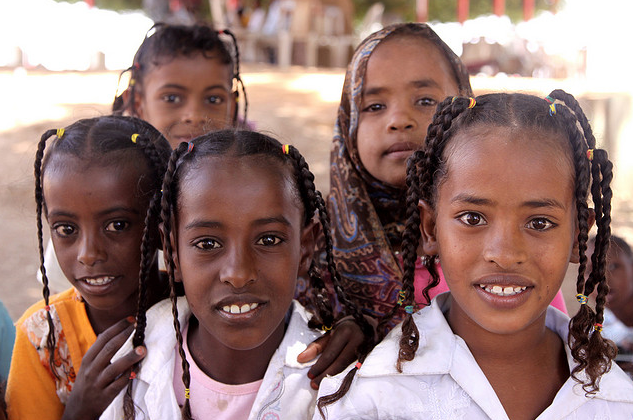Says the girl whose life goal is to be BLEACHED

You don't need to attack @Aria here, she showed you majority of Mauritania people and how they do look, you have never been to ME or meet them.
Says the girl whose life goal is to be BLEACHED

Mauritania is not in the Middle EastMauritania is number one country in skin bleaching in Middle East. It is socially acceptable thing there.
 and why would they bleach when they already light skinned lol... I guess you meant number one in force feeding to make them grow big fuuto
and why would they bleach when they already light skinned lol... I guess you meant number one in force feeding to make them grow big fuuto
Mauritania is not in the Middle Eastand why would they bleach when they already light skinned lol... I guess you meant number one in force feeding to make them grow big fuuto

Nope, actually Somalis interacted and met lot of Mauritanian in gulf countries and ME. Their culture is very weird from encouraging of divorce and divorce parties, fatting camps for girls, using weirdest materials for skin bleaching. The marks of beauty to them is first divorced woman(meaning she is beautiful, desirable and wanted), single divorced woman is even better (she gets extra points for her fertility). Fat, single mother are on topic of pyramid for them. And don't forget you will have a big divorce party on your divorce day.
This can't be real. Lmao
This can't be real. Lmao







That's exactly what Cushites are, Except for Somalis and Bejas it happened much before them so our look is slightly more distinct.
I can't tell them apart from us, you posted pictures of kids which imo isn't a good example since their features aren't fully developed.

These kids are slightly older:

The mixture occurred thousands of years ago and involved an extinct group of Nilotes and neolithic farmers from Lebanon so technically yes the Somali mixture could never be replicated in contemporary times.@Amun stated that they spoke a Cushitic language and switched to a Nilotic one. That makes quite a bit of sense since the people of Meroe initially spoke a Proto-East Cushitic language. In any case, the ancient admixture you find in Somalis cannot be replicated. And it isn't as simple as mixing a Nilote with a Semite. Somalis do not have Southern Arabian admixture, like certain Ethio-semetic speaking groups. Nor do they have genetic inflow from West/Central Africa, which for some reason is common among many contemporary Arabs, North Africans, including North Sudanese (likely owning to their heavy involvement in the Arab Slave Trade). :siilaanyolaugh: @Bahal hopes you haven't been contaminated with newer inputs. He might start including only the purist of Cushites into the club.
The mixture occurred thousands of years ago and involved an extinct group of Nilotes and neolithic farmers from Lebanon so technically yes the Somali mixture could never be replicated in contemporary times.
Sudan's involvement in the trans-saharan slave trade didn't affect the country's genetic makeup. Suakin was the only slave port and the slaves pretty much came and left similar to in Zeila and Mogadishu. Some Nigerian Muslims were kidnapped and enslaved while going through Sudan for Hajj but outside of Darfur Sudanis didn't mix with West/Central Africans en masse.

Sudan border TChad... I've seen Sudanis score 0% W/C African and some with 7% W/C African. You're comparing a country that borders 3 major African regions to 2 countries that only border 1 region.You mean Nilosaharan. And Lebanese. That's a little too precise. You mean Levant and that covers a wide stretch of land.
Tell me, Beja, why do Ethiopians and Somalis have 0% West/Central African Admixture, but that isn't the case for some of the North Sudanese samples I've seen. Its a bit confusing. I doubt this is the case for the insular Beja but I'm waiting on samples.
Sudan border TChad... I've seen Sudanis score 0% W/C African and some with 7% W/C African. You're comparing a country that borders 3 major African regions to 2 countries that only border 1 region.
 Thank God I'm Somali. All I have to busy myself with is a sub clan. My heart goes out to you guys. It must be confusing to be Sudanese.
Thank God I'm Somali. All I have to busy myself with is a sub clan. My heart goes out to you guys. It must be confusing to be Sudanese.  Especially for the Beja, you guys maintained your Cushiticness in a sea of Arabisation.
Especially for the Beja, you guys maintained your Cushiticness in a sea of Arabisation.No one cares about genetics in Sudan... People identify as Sudanese first and foremost and some elders still care about tribe.Thank God I'm Somali. All I have to busy myself with is a sub clan. My heart goes out to you guys. It must be confusing to be Sudanese.

No one cares about genetics in Sudan... People identify as Sudanese first and foremost and some elders still care about tribe.
I'm currently in Sudan right now and the nationalism here is intense... There's nothing to pity lol.
Somalis seem patriotic to me.That's good to hear. Pray that the only country where the formal language is Cushitic gets bitten by nationalism. We need a second coming.:siilaanyolaugh:
Somalis seem patriotic to me.
If you're talking about anti-tribalism then that's more complex. Tribes in Northern Sudan were fairly isolated due to nile cataracts but when urbanization took place in the 1960s-70s Northerners of different tribes got together and saw how similar they looked (especially compared to Southerners) then they pretty much dropped tribes and married whomever they wanted.
People still use tribes till this day but it's nothing serious.

